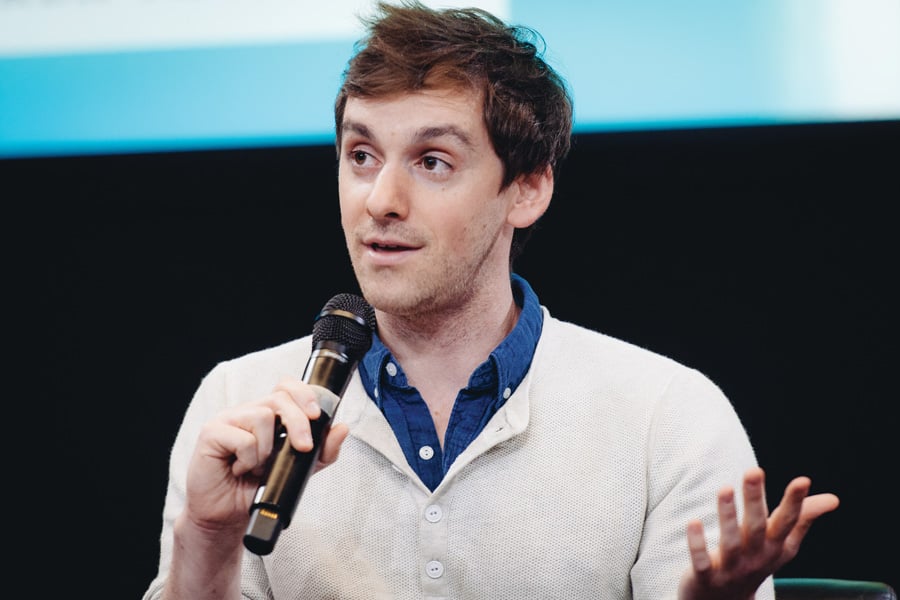Author, journalist Derek Thompson returns to NU to discuss new book
Noah Frick-Alofs/The Daily Northwestern
Journalist Derek Thompson speaks at the McCormick Foundation Center Forum on Wednesday. Thompson talked about how ideas can “make it big.”
May 3, 2017
Journalist Derek Thompson (Medill ’08) said he remembers sending out about 30 job applications to magazines he thought would hire him during his senior year. But after every application was rejected, he discovered a fellowship at The Atlantic magazine and was accepted.
Now a senior editor at The Atlantic, Thompson spoke about his new book, “Hit Makers: The Science of Popularity in an Age of Distraction,” on Wednesday. About 60 students attended the talk, held in the McCormick Foundation Center Forum and sponsored by the Medill School of Media, Journalism, Integrated Marketing Communications.
Thompson’s book, released in February, explores why certain aspects of pop culture “make it big” today while others fall short. Thompson said most trends are not new, but build from previous ones. For ideas to become popular, he said, they must be new enough to be exciting but still similar to past ideas.
“When faced with a surprising, unfamiliar idea, the chief challenge you have to overcome is to make that surprising idea familiar, Thompson said. “You want to push your idea towards the middle, to make it optimally familiar and make it a familiar surprise.”
Thompson also said “good content” will not necessarily be popular because of the increasing availability of media. Creators must now target their audiences, but also anticipate and appeal to new ones.
“To make something go truly big, you can’t just write something that your first audience will want to read,” Thompson said. “You have to write something that your first audience will want to share with their audience, the audience of your audience.”
Medill graduate student Kara Voght, who moderated the event with Medill junior Natalie Escobar, told The Daily she admires Thompson’s work and identifies closely with his journalistic values.
Voght said the magazine faculty wanted to bring Thompson to NU because they thought he would provide insight into constructing sound content.
“It’s really important for people to be engaged in not only creating journalism but also thinking about the creation of it on a meta-level,” Voght said. “Opportunities to create that type of conversation are pretty important to me.”
Medill Prof. Douglas Foster, one of Thompson’s former professors, called Thompson’s return to Medill a “homecoming of sorts.” Thompson spoke to Foster’s magazine writing class on Wednesday, a class he took as an undergraduate student 11 years ago.
Foster said Thompson’s return to Medill was important for students because they were able to hear from someone who was in their place a few years ago. Foster said Thompson’s ability to create a successful journalism career, despite a changing industry, was impressive.
He added that Thompson’s book introduces ideas and dynamics of outcome that all Medill students should know, regardless of their concentration.
Toward the end of his talk, Thompson said if students admire a publication or its writing style, they should imitate it.
“Steal from people, suck up to organizations that you love and recognize that what they want is someone who writes like the people they already have and use that to your advantage,” Thompson said.
Email: elizabethbyrne2020@u.northwestern.edu
Twitter: @lizbyrne33



